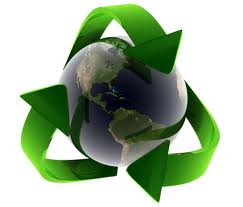Biodegradable Plastics, Really Biodegradable?

So what’s the real scoop on this fantastic new product called Biodegradable Plastics that the manufactures are talking about? Is it really biodegradable? Does it really break down into harmless particles? Is it really the answer to the huge global problem that plastics have become to our environment?
When I first heard about this I thought to myself, wow finally someone comes up with a plastic like material that will break down in the environment. What a wonderful idea. Not so fast. Just with a little digging I find out this stuff does not break down as advertised and in some cases is even worse than the original plastic.
Conventional plastic takes a long time to break down. The problem is it never really breaks down and just melts away into nothing. It actually just keeps breaking down into smaller and smaller pieces into what is called microplastics and ends up in every nook and cranny of our eco-system including us after we eat fish that have ingested it.
A report released by the United Nations looked into these so-called biodegradable plastics and it ends up the reality does not match the hype. When you read the fine print you find out that these plastics require long-term exposure to high temperatures around 122F, like those found in large municipal composters to actually break down. Problem here is there seems to be only about 100 facilities nationwide that will accept these “biodegradable” plastics according to a report by Mother Earth News.
So manufactures are making a product that they claim is biodegradable that is not. The BS just never seems to end. Think about it, if most of our municipal waste treatment plants will not accept this material for composting what the hell is this stuff?
The bigger question becomes where will it end up if not at the recycling centers? They will either end up in landfills that do not have high temperatures of 122 degrees or higher or in our oceans. To add insult to injury once these plastics are in our oceans the water actually reduces UV and oxygen exposure so they degrade even slower than they would on land.
No matter what the label states these so called biodegradable plastics will be around us for a very long time.
When all is said and done these so called Biodegradable Plastics are actually less recyclable than regular plastics and they can contaminate the feed of recycling plants. According to Peter Kershaw, one of the authors of the UNEP study: “If you’re recycling plastics you don’t want to have anything to do with biodegradable plastics because if you mix biodegradable with standard plastics you can compromise the properties of the original plastic.”
It seems this is just another example of some industries “greenwashing” a product so it sells. Unless they can make a biodegradable plastic that actually degrades under regular conditions and fairly rapidly without causing problems in standard recycling plants I’m guessing this product is not the answer to our plastic problem. In my opinion they should just be taken off the market because they are creating a whole new set of problems.
Why would any industry go through the time and cost of creating a product that will only add to the problem of global waste at a time when we are trying to reduce harmful products from our environment? Of course the simple answer is to make money but at what expense to our habitat and living conditions.
I’ts nice to make money but at what expense. In the end these plastics will affect everyone including the CEO’s of these company’s. That means their family members will be eating fish that ingested plastic and the beaches they go to will eventually have plastic trash on them. Wouldn’t it make more sense to spend the time and energy in inventing a real biodegradable plastic? Who ever comes up with this will corner the market and make a gazillion dollars.
Could you be the one that comes up with that idea??







